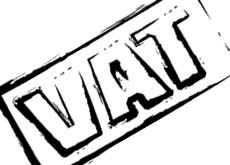
SALES TAX
Sales Tax is an indirect tax which is charged at the point of purchase for certain goods and services. The tax is usually set as a percentage by the Government. There are usually alist of exemptions. The tax can be included inthe price or added at the point of sale.
It is charged exactly once on any one item, and is simple to calculate and simple to collect. A conventional or retail sales tax attempts to achieve this by charging the tax only on the final end user, unlike a gross receipts tax levied on the intermediate business who purchases materials for production or ordinary operating expenses prior to delivering a service or product to the marketplace. This prevents so- called tax “cascading” or “pyramiding,” in which an item is taxed more than once as it makes its way from production to final retail sale.
Most of the Indian States have replaced Sales tax with a new Value Added Tax (VAT) from April 01, 2005. VAT is imposed on goods only and not services and it has replaced sales tax. Only Sales Tax is replaced by VAT. VAT is implemented at the State level by State Governments. VAT is applied on each stage of sale with a mechanism of credit for the input VAT paidSales Tax Types
Central Sales Tax which is levied by Central Government.
State Sales Tax which is levied by State Government.
Local Sales Tax which is levied by Local Government.
Slabs of VAT
Registrar, share transfer agents and bankers to an issue.
0% for essential commodities
1% on bullion and precious stones
4% on industrial inputs and capital goods and items of mass consumption
All other items 12.5%
Petroleum products, tobacco, liquor etc., attract higher VAT rates that vary from State to State
It is charged exactly once on any one item, and is simple to calculate and simple to collect. A conventional or retail sales tax attempts to achieve this by charging the tax only on the final end user, unlike a gross receipts tax levied on the intermediate business who purchases materials for production or ordinary operating expenses prior to delivering a service or product to the marketplace. This prevents so- called tax “cascading” or “pyramiding,” in which an item is taxed more than once as it makes its way from production to final retail sale.
Most of the Indian States have replaced Sales tax with a new Value Added Tax (VAT) from April 01, 2005. VAT is imposed on goods only and not services and it has replaced sales tax. Only Sales Tax is replaced by VAT. VAT is implemented at the State level by State Governments. VAT is applied on each stage of sale with a mechanism of credit for the input VAT paidSales Tax Types
Central Sales Tax which is levied by Central Government.
State Sales Tax which is levied by State Government.
Local Sales Tax which is levied by Local Government.
Slabs of VAT
Registrar, share transfer agents and bankers to an issue.
0% for essential commodities
1% on bullion and precious stones
4% on industrial inputs and capital goods and items of mass consumption
All other items 12.5%
Petroleum products, tobacco, liquor etc., attract higher VAT rates that vary from State to State


No comments:
Post a Comment